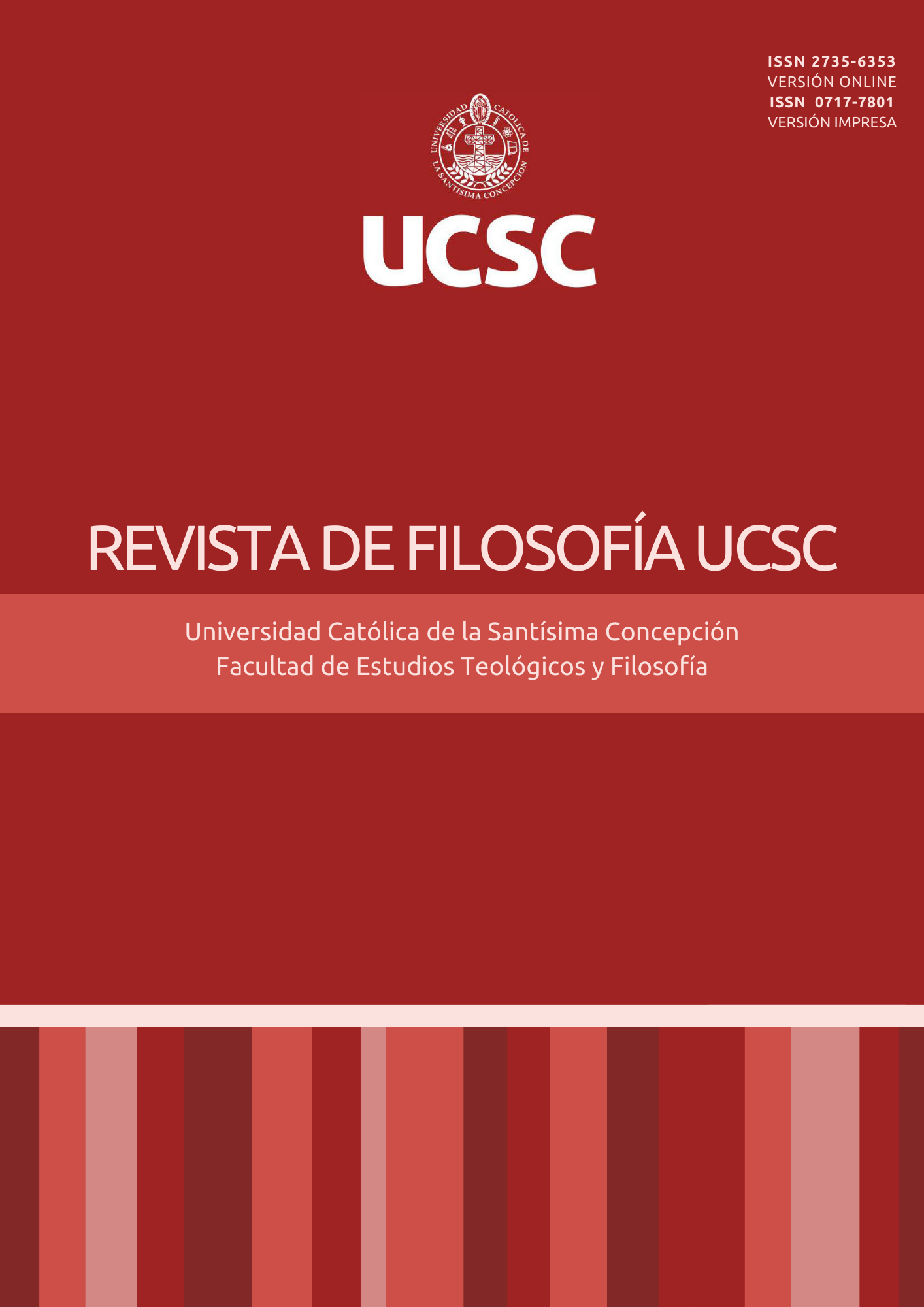The epistemic role of language on the belief about Trinity and Incarnation
Main Article Content
Abstract
This paper analyzes some relevant aspects of the Incarnation of Jesus, the God-Son. It considers the tension between interpretations in favor of a metaphorical reading, and the problem that entails that this discards the historical character, the event of God made flesh. This is an ontological problem. At the same time, reflects on the role of the notion of mystery and the scope it has to believing in the Incarnation, that is, admitting an inherent epistemic limit as finite beings but at the same time making viable that the believer gradually understands what he believes, even if not fully. This constitutes an epistemic edge. In the same way, the role of language as a way of access and transmission of knowledge about the divine and sacred is evaluated, emphasizing the role of the names used to refer to the God-Father, the God-Son and the Holy Spirit, considering their logical implications.
Downloads
Metrics
Article Details

This work is licensed under a Creative Commons Attribution-NonCommercial 4.0 International License.
The Revista de Filosofía UCSC is an open access journal and does not charge for publication. In addition, it regulates its Copyright and access policy according to the Creative Commons Attribution-NonCommercial 4.0 International Public License (CC BY-NC 4.0), therefore sharing (reproducing and distributing the material in any medium or format) and adaptation (modifying, transforming, and creating from the material) is allowed as long as proper credit is given and the citation is included with the corresponding data. Moreover, it is not allowed to use the material for commercial purposes.
References
Baber, H. E. (2015). The Trinity. Faith and Philosophy, 32 (2), 161-171.
Baber, H.E. (2023). The Trinity. The Internet Encyclopedia of Philoso-phy. https://iep.utm.edu/trinity/#SH3B
Besson, C. (2018). Norms, Reasons, and Reasoning. The Oxford Handbook of Reasons and Normativi-ty. Oxford University Press. https://doi.org/10.1093/oxfordhb/9780199657889.013.23
Boesel, C., & Keller, C. (2009). Apophatic bodies: Negative theology, incarnation, and relationality. Fordham University.
Brichto, Herbert Chanan (1998). The names of God: poetic readings in biblical beginnings. Oxford University.
Britannica, T. Editors of Encyclopaedia (2023, January 6). Incarnation. Encyclopedia Britannica. https://www.britannica.com/topic/Incarnation-Jesus-Christ
Bultmann, R. (1960). Jesus Christ and Mythology. SCM-Press.
Cross, Richard. (2009). "The Incarnation" pp. 452-475, in Flint and Rea (eds.) The Oxford Hand-book of Philosophical Theology. New York: Oxford UP.
Frye, R. M. (1964). Christian Theology and the Challenge of its Parodies. Theology Today, 20(4), 496- 502. https://doi.org/10.1177/004057366402000406
Gray, D. P. (1974). The Incarnation: God's Giving and Man's Receiving. Horizons, 1(1), 1-13.
Hick, J. (1989). The Logic of God Incarnate. Religious Studies, 25(4), 409-423.
Kelly, J. N. D. (1978). Early Christian Doctrines. A. & C. Black.
Kripke, S. (1980). Naming and Necessity. Harvard University Press.
Lee, M. E. (2020). Historical Crucifixion: A Liberationist Response to Deep Incarnation. Theologi-cal Studies, 81(4), 892-912.
Leftow, B. (1999). Anti Social Trinitarianism, in The Trinity : An Interdisciplinary Symposium on the Trinity, S. T. Davis, D. Kendall and G. O'Collins (eds.). Oxford University Press, 203- 249.
Leftow, B. (2004), "A Latin Trinity," Faith and Philosophy, 21(3), 304- 333.
Leftow, B. (2007), “Modes without Modalism”, in Persons: Human and Divine, P. van Inwagen and D. Zimmerman (eds.). Oxford University Press, 357– 375.
Leftow, B. (2012b). On Hasker on Leftow on Hasker on Leftow. Faith and Philosophy, 29 (3), 334 - 339.
McHugh, J. (1911). Mystery. In The Catholic Encyclopedia. Robert Appleton Compa-ny. http://www.newadvent.org/cathen/10662a.htm
Miranda-Rojas, Rafael. (2013). Hegel, Contradiction and dialetheia. Journal of Philosophy, Vol. LXIX. 169 – 181
Morris, T. V. (1986). The Logic of God Incarnate. Cornell Univ. Press.
Publishing, R. (2008). Names of God and Other Bible Studies. Tyndale House Publishers.
Romero, G. E. (2018). Scientific Philosophy. Springer.
Smith, James K.A. (2022). Speech and Theology: Language and the Logic of Incarnation. Radical Orthodoxy Series. Routledge.
Svensson, Manfred (2016) Public reason, reasonability and religion a: Critical look at a liberal tradi-tion. ldeas y Valores 65(161), 247 https://doi.org/10.15446/ideasyvalores.v65n161.42079
Tuggy, D. (2003a). The Unfinished Business of Trinitarian Theorizing. Religious Studies, 39: 165-83.
Tuggy, D. (2021). Trinity. The Stanford Encyclopedia of Philosophy, Edward N. Zalta (ed.), https://plato.stanford.edu/archives/win2021/entries/trinity/
Visala, A. (2018) Pro-Science Rhetoric or a Research Program? – Naturalism(s) in the Cognitive-Evolutionary Study of Religion. New Developments in the Cognitive Science of Religion, 51-69. In van Eyghen, H., Peels, R., & van den Brink, G. (eds). Springer International Publishing
Wood,W. (2022). Philosophy and Christian Theology. The Stanford Encyclopedia of Philosophy (Spring 2022 Edition), Edward N. Zalta (ed.) https://plato.stanford.edu/archives/spr2022/entries/christiantheology-philosophy
Zachhuber, J. (2020) The Rise of Christian Theology and the End of Ancient Metaphysics: Patristic Philosophy from the Cappadocian Fathers to John of Damascus. Oxford.




